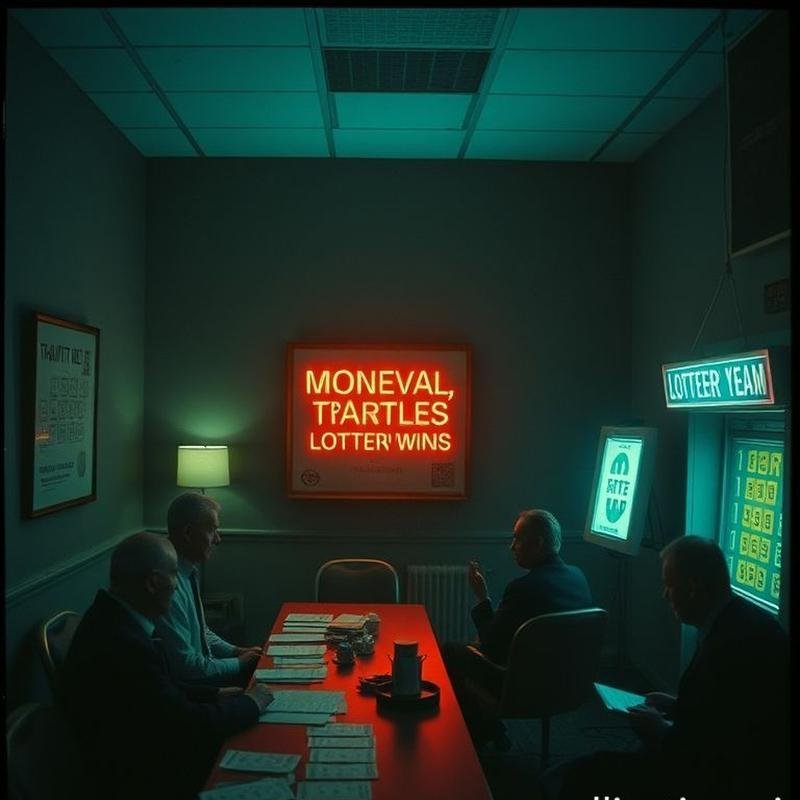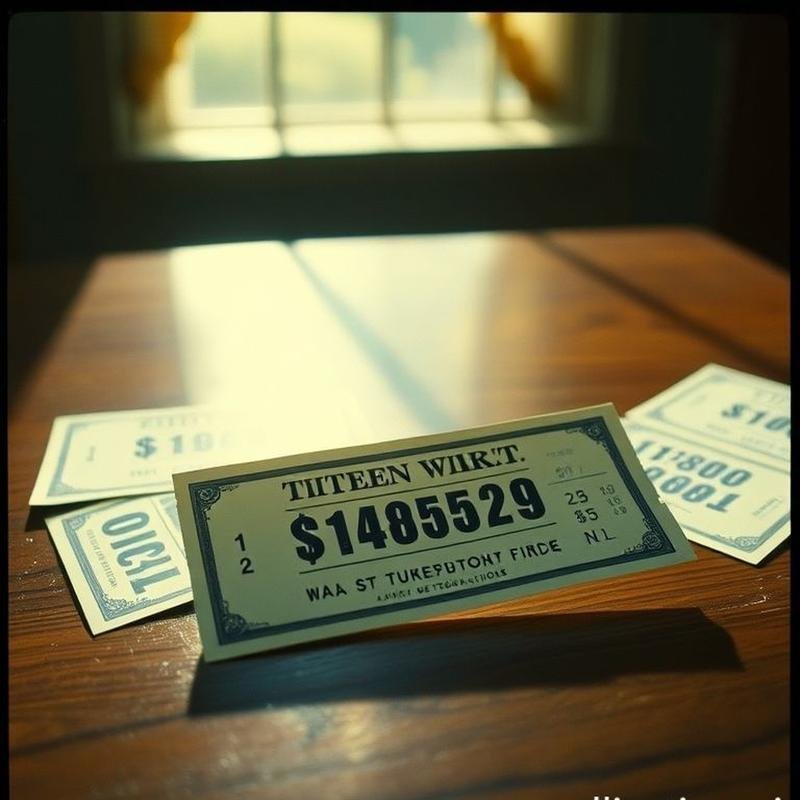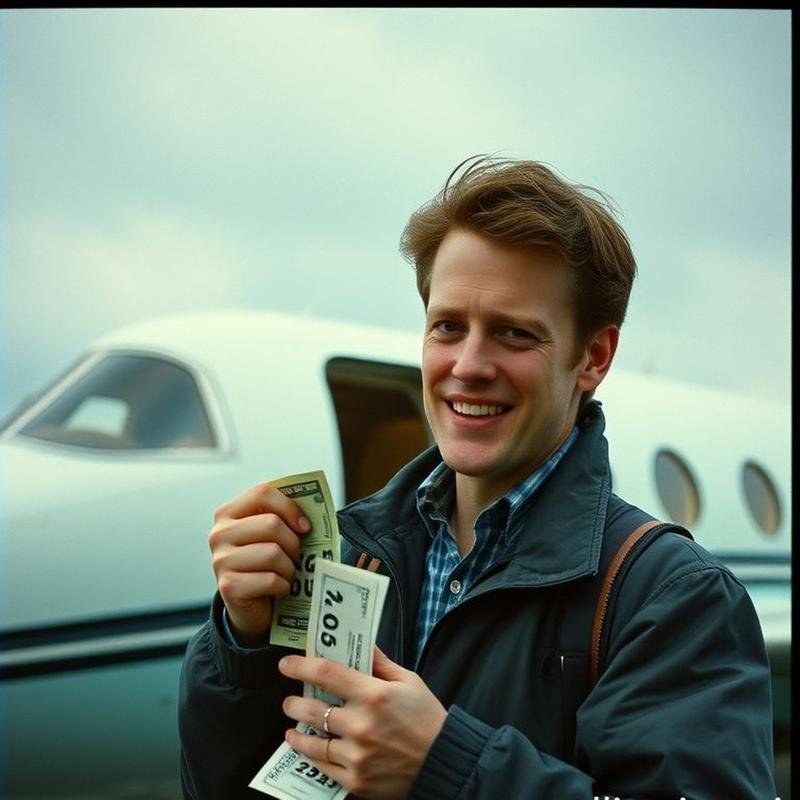Has this individual purportedly won the lottery 14 times using a secret formula?

Lottery Winner: Genius Algorithm or Just Luck?
Is it truly possible to “hack” luck? The story of one individual’s fourteen lottery wins begs the question: is this merely an extraordinary coincidence, or are we witnessing a mathematical algorithm of genius that has fundamentally altered the game? In this episode, we delve into the captivating realm of probability, exploring the transformation of illusion into a precise mathematical equation. We examine the complex intersection of skill, fate, and ethics in a game that defies simple categorization.
Before we present the key evidence, share your predictions in the comments section below. And to ensure you don’t miss the unveiling of this groundbreaking algorithm, subscribe to our documentary channel.
The Legend of Stefan Mandel
Is it simply a myth? The narrative of a man who defied fate, conquering the lottery not once, but an astounding fourteen times. Stefan Mandel, the Romanian mathematical prodigy, has become a figure of both awe and suspicion in the world of probability. In the 1980s, Mandel gained notoriety, armed with an algorithm he claimed could predict lottery numbers. His initial jackpot win in Romania was merely a precursor to his larger ambition.
Mandel subsequently emigrated to Australia, where he expanded his operations. He and his team secured twelve lottery jackpots, an achievement that provoked scrutiny from authorities and accusations of impropriety. Undeterred, in 1992, Mandel ventured to Virginia, USA. There, he undertook a high-stakes gamble, purchasing every possible number combination. With the jackpot reaching $27 million, Mandel wagered over $7 million on tickets. Was this a reckless gamble, or did he possess unwavering confidence in his ability to unlock untold riches? Despite rigorous legal investigation, Mandel was never convicted of any crime. Did his actions fall outside the scope of the law, or did he simply exploit a vulnerability in the system?
Decoding the Equation: Fact or Fiction?
What is this purported secret equation? Is it a product of imagination, or is it mathematically feasible and applicable in the real world? The fundamental probability of winning the jackpot in most major lotteries appears daunting, ranging from 1 in 14 million to an astronomical 1 in 300 million. But what if we could improve these odds, even marginally? Could we shift the balance in our favor?
Analyzing Probabilities and Patterns
To begin our analysis, let’s examine the probabilities. We can employ prime number theory – a powerful mathematical tool – to analyze the distribution of numbers in lottery results, seeking subtle deviations from expected random distribution. While this method may not significantly increase the chances of winning, it could potentially help identify numbers with a higher probability of appearing. We can also analyze historical number patterns. Are there specific numbers that appear more frequently, suggesting hidden patterns? While this may be mere coincidence, some theorists believe these patterns can be exploited. However, it’s crucial to remember that the lottery is fundamentally based on randomness, and past results do not guarantee future outcomes. The past can inform, but it cannot predict. Furthermore, we must consider the availability heuristic, a cognitive bias that leads us to overestimate the probability of easily recalled events, such as winning the lottery. Witnessing a friend win a small prize, for example, might lead to an inflated perception of one’s own chances of winning the jackpot, potentially leading to increased ticket purchases driven by false hope.
The Randomness Factor and Security Measures
However, before we become consumed by tales of genius and extraordinary strategies, let’s consider the fundamental nature of the lottery. At its core, it is a game of purely random numbers. The odds of winning the Powerball jackpot are 1 in 292.2 million, while in Mega Millions, the odds are an even more staggering 1 in 302.6 million. These figures underscore the seemingly miraculous nature of winning. Moreover, most lotteries rely on certified random number generators, subject to rigorous and continuous auditing. These systems are meticulously designed to ensure integrity and prevent manipulation. Even in the rare instances of attempted fraud, such as the Pennsylvania lottery scandal in 1980, the fraud was swiftly detected. While some individuals, such as the mathematician Renato Gianella, have exploited loopholes in specific lottery designs, they have never discovered a definitive “magic equation.” Furthermore, the Multi-State Lottery Security Agreement of 1993 established uniform security standards specifically designed to prevent similar attempts.
Security Breaches and Legal Repercussions
However, even these robust systems have faced security breaches. Let’s now shift our focus to other instances where individuals have attempted to “crack the code” of luck, often with legal repercussions.
Stefan Mandel, the Romanian mathematics expert, achieved the remarkable feat of winning the lottery 14 times. This was not simply luck, but the result of complex calculations that enabled him to purchase every possible number combination. In 1992, Mandel led a team to purchase $7.1 million worth of tickets, guaranteeing their win of the Virginia lottery jackpot. While his actions were legal, his strategy prompted changes in lottery regulations to prevent future occurrences.
Conversely, other attempts have taken a darker turn. In 2004, Cindy Jackson, a Canadian lottery employee, was convicted of conspiracy to commit fraud, while the 2010 Hot Lotto scandal revealed the manipulation of winning numbers by an information security officer. These cases highlight the potential for the allure of winning to drive individuals to cross legal boundaries. Despite these efforts, the reality remains that predicting winning lottery numbers using algorithms and statistical models has not achieved significant and demonstrable success.
Ethical Boundaries and Exploitation
But is every path to victory justifiable? In 2003, Steven Chicca won the lottery in Iowa after purchasing vast quantities of tickets based on statistical analysis, sparking considerable debate. Where is the line between skillful strategy and outright exploitation? The story of Statiŋ Gale in the 1980s, who developed a betting system based on the most probable number combinations, raises similar ethical questions.
Furthermore, what about those who blatantly violate the rules? The Eddie Tipton scandal of 2011, involving the manipulation of the random number generator, reveals the darker side of the lottery, driven by greed. A Cambridge University study revealed that low-income individuals disproportionately spend a larger percentage of their earnings on lottery tickets, raising concerns about the lottery’s potential to exploit vulnerable populations. As Milton Friedman famously quipped, the lottery is a tax on people who are bad at math.
The Illusion of Control and the Gambler’s Fallacy
Ultimately, the reality is that the odds of winning the jackpot remain incredibly slim. Even with complex mathematical strategies, any improvement in the odds is marginal. While these strategies may increase the chances of winning smaller prizes, the jackpot remains largely determined by chance. The illusion of control fuels our desire to find patterns where none exist. Behavioral psychology studies demonstrate how we project illusory patterns onto random data, creating a false sense of predictability. The case of Stephen Cookuca, a two-time jackpot winner, serves as a reminder of the dominant role of luck, regardless of strategy. Lottery advertisements, with their carefully curated stories of winners, amplify this illusion. The gambler’s fallacy further deceives us into believing that a series of losses increases the likelihood of an imminent win, while each lottery draw is an independent event, unaffected by previous outcomes.
Conclusion: Luck Reigns Supreme
After this analysis, we return to the central question: can mathematics truly be exploited to increase the chances of winning the lottery, or is it simply a delusion? The answer lies somewhere in between. While mathematics can provide tools to slightly improve our odds, it cannot guarantee the jackpot. Luck remains the decisive factor, and the lottery remains, fundamentally, a game of chance.
In light of our exploration of the potential for using mathematical strategies to increase the odds of winning the lottery, what are your thoughts? Do you believe there is an ethical balance between skill and chance in such endeavors, or does the pursuit of increasing the odds, however small, raise fundamental ethical questions? Share your opinions and predictions in the comments, and let’s engage in a constructive dialogue on this complex issue.







